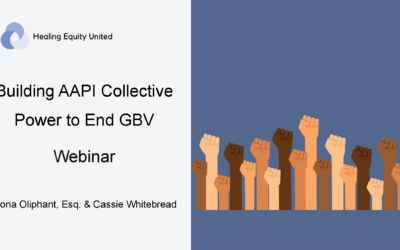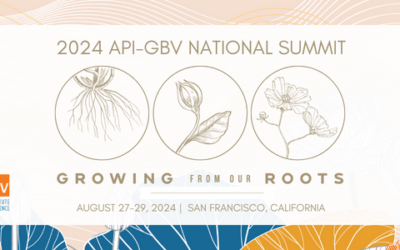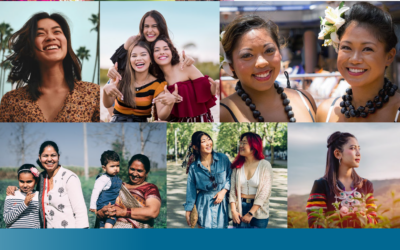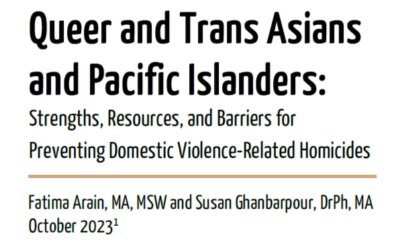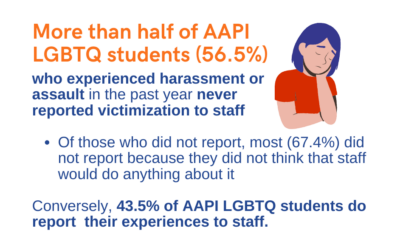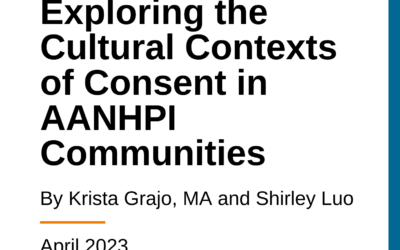November 7, 9am HST/12pm PST/2pm CST/3pm EST
In our work, we recognize that cultural-responsiveness and trauma-informedness are not end goals, but a continuous process of learning and adapting our advocacy to best meet the layered and changing needs of survivors. We also know that these practices don’t end at advocate-client interactions, but must encompass all aspects of an organization, from to staff and Board wellness to physical space.
This conversation with Mona Kafeel from Texas Muslim Women’s Foundation looked at creating a model for strengths-based advocacy grounded on and understanding of individual, vicarious, generational, and collective trauma. Mona discussed how the Trauma-Informed Care Assessment Tool, the Survivor Well-Being Questionnaire, and other practical tools developed by TMWF can be used to assess your organization for gaps in trauma-informedness and to identify better organizational policies.
We strongly suggested that participants review the report, From the Roots of Trauma to the Flowering of Trauma-Informed Care, and especially the evaluation tools and implementation plan contained within the appendix, prior to joining the webinar.
Related Resources
Critical Intersections of FGM/C: The Value of Intersectionality in Cross-Collaboration
April 23, 8am HST/11am PST/1pm CST/2pm ESTOn April 23rd, API-GBV will be partnering with Sahiyo U.S. for Critical Intersections of FGM/C: The Value of Intersectionailty in Cross-Collaboration, a presentation of Sahiyo’s Mixed Methods Report as part of the survivor and...
Building AAPI Collective Power to End GBV
March 7, 8am HST/11am PST/1pm CST/2pm ESTAsians, Asian Americans, and Pacific Islanders (AAPIs) are often left out of conversations around diversity, equity, inclusion, and belonging (DEIB) in the U.S. Often lumped together as a “model minority,” certain AAPI groups...
2024 APi-GBV National Summit: Growing From Our Roots
Latest Update: Early Bird Registration Open Now Through June 1!See all available API-GBV National Summit information below:This page will continue to be updated as more information is released. For any technical issues or additional questions, please contact our team...
Connected and concerned: Online sexual harassment of teenagers of Asian descent on dating platforms
February 29, 8am HST/11am PST/1pm CST/2pm ESTGenerative AI, with its ability to create morphed photos and deepfakes, is negatively impacting teenagers, especially female teenagers of Asian descent, online and influencing their identity in digital spaces. This...
Impact Report FY22: Growing Stronger Together to Build Collective Power
The Asian Pacific Institute on Gender-Based Violence (API-GBV) is a culturally specific national resource center on domestic violence, sexual violence, trafficking, and other forms of gender-based violence in Asian/Asian-American and Pacific Islander (AAPI)...
Queer and Trans Asians and Pacific Islanders:
Strengths, Resources, and Barriers for Preventing Domestic Violence-Related Homicides
This report presents a groundbreaking qualitative research project focusing on the prevention of domestic violence-related homicides among queer and trans Asians and Pacific Islanders (QTAPI). It uncovers the complex web of risk factors, including isolation and...
AAPI LGBTQ+ Experiences of GBV
This factsheet summarizes the layered needs and experiences of lesbian, gay, bisexual, transgender, queer, and more (LGBTQ+) Asian, Asian American, and Pacific Islander (AAPI) survivors and communities in the U.S., based on the current literature available. Although...
Exploring the Cultural Contexts of Consent in AANHPI Communities
AANHPI communities tend to be collective in nature, as well as hierarchical, to varying degrees. Both contexts complicate the concepts of consent and boundaries, especially for AANHPI youth and young adults, who often do not have opportunities to learn about the taboo...
Hosted by API-GBV featuring Mona Kafeel from Texas Muslim Women’s Foundation
November 2023

